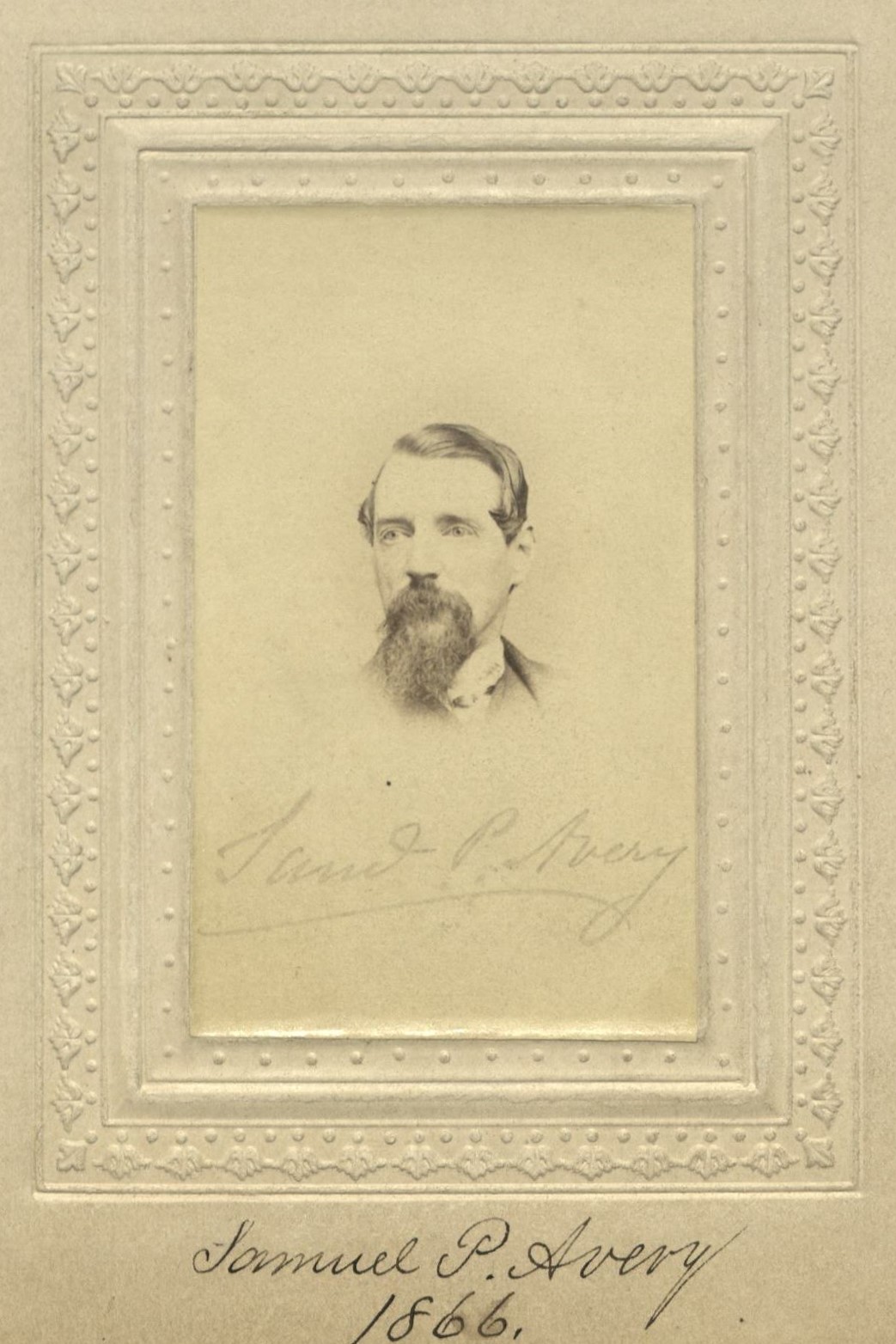Engraver/Art Dealer
Centurion, 1866–1904
Born 17 March 1822 in New York (Manhattan), New York
Died 11 August 1904 in New York (Manhattan), New York
Buried Green-Wood Cemetery , Brooklyn, New York
, Brooklyn, New York
Proposed by Louis Lang and Daniel Huntington
Elected 3 November 1866 at age forty-four
Proposer of:
Century Memorial
Samuel Putnam Avery had been for nearly forty years one of the Century brotherhood, and none among us in that time more richly filled the constitutional qualification in his love of letters and of art. An old New Yorker, born here of New England parentage eighty-three years ago, he was closely and efficiently associated with a great number of the organizations for the enjoyment and promotion of these interests. In his youth he was an engraver on copper and on wood; then he became a publisher and illustrator, then a dealer and collector, and gradually a connoisseur, and was through all an intelligent and appreciative student and lover of art. It was through his agency and guidance that many of the fine private collections of this and other cities—notably those of the late Mr. [William Henry] Vanderbilt and Mr. [William Thompson] Walters—were enriched, especially in the line of the old Dutch masters and modern French landscape. His success in his profession—it may be called one—was due to his thoroughly trained judgment, his delicate and sure taste, and the courage of his convictions. He was himself a passionate but careful and systematic collector, and a most generous benefactor. His collection of some seventeen thousand prints, representing the labors of an ordinary lifetime, was given to the New York Public Library, Astor, Lenox, and Tilden foundations. Columbia has what is probably the best architectural library in the country, given by him as a memorial of his son. The Teachers College received from him a valuable library in memory of a daughter. He gave many precious volumes to the Academy of Medicine. His Oriental Collection is in the Metropolitan Museum. He was a frequent contributor to the Century Club. In every organization of the many with which he was connected—the Metropolitan Museum, the Public Library, the Grolier Club, the Sculpture Society, the Civil Service Reform Association,—he gave, with wonderful liberality, his counsel and aid, even more valuable than his other gifts. Quiet, modest, and retiring in his disposition, one needed to know him well to realize the breadth and refinement of his culture, the soundness and sureness of his judgment, the tenderness of his heart, the gentle firmness of his fidelity to high standards.
Edward Cary
1905 Century Association Yearbook

